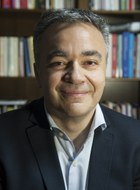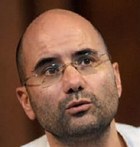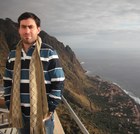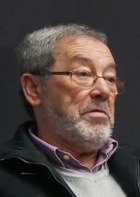Portuguese Unit

António Rafael Amaro
Universidade de Coimbra - Centro de Estudos Interdisciplinares do Século XX
António Rafael Amaro is Professor of Economic and Social History at the Faculty of Economics, University of Coimbra. He is also a Researcher at the Centre of 20th Century Interdisciplinary Studies of the University of Coimbra (CEIS20/UC). In his investigations he has privileged themes of Contemporary History, having as a central theme the construction, affirmation and legitimization of the Nation-State in Portugal, through publications centred on economic inequalities and regional asymmetries, in the strategies of political-administrative division of the territory, in the relationship of the State with regional and peripheral powers, in regionalist movements and the role of local and regional elites, in the forms of Welfare State construction, in the relations between the State model and public finances.

Joana da Costa Brites
Universidade de Coimbra - Centro de Estudos Interdisciplinares do Século XX
Assistant Professor at the Faculty of Arts and Humanities of the Univ. of Coimbra (UC) and Associate Researcher in CEIS20. With a master's (2008) and doctorate (2012) in Art History (field of Portuguese 'New State''s architecture) at UC, she worked as an art historian in the Office responsible for the application of UC for World Heritage Status. She directed her Faculty's bachelor's degree in Art History between 2015 and 2019 and co-coordinated the interdisciplinary lines of research of CEIS20 from 2018 to 2020. She carried out teaching mobility missions in Spain, Italy and Romania and, in April 2019, was a visiting researcher at Brown University, USA. Her research focuses on: the relationship between fascism and modernism; artistic conditioning; modern architecture, colonialism, and development; Romanticism; dissonant heritage. She has published two books, one edited volume and various articles in national and international journals and integrated the team of funded research projects.

Álvaro Garrido
Universidade de Coimbra - Centro de Estudos Interdisciplinares do Século XX
Full Professor, Economic and Social History. Faculty of Economics, University of Coimbra, Portugal.
Diretor of Faculty of Economics, University of Coimbra, Portugal.
Senior researcher of the CEIS20 (Centro de Estudos Interdisciplinares do Século XX da Universidade de Coimbra),

Manuel Loff
Universidade Nova de Lisboa - Instituto de História Contemporánea
Manuel Loff (Oporto, 1965). Tenured Associate Professor at the Department of History and Political and International Studies, University of Porto (Portugal), and senior researcher at the Instituto de História Contemporânea of the Universidade Nova de Lisboa, coordinating the research line on "Connected Histories: State-Building, Social Movements and Political Economy", working closely with a number of researchers from Portugal, Spain, France and Brazil. PhD in History and Civilisation (2004) at the European University Institute (Florence), MA in Contemporary History (1993) at the Universidad Nacional de Educación a Distancia (Madrid). My main research interests deal with Political, Social and Ideological History of the 20th century (Fascism and Neofascism, Colonialism, International Relations and Education), Memory Studies, and 21st century authoritarian transitions through securitisation. Currently I am focused on 21st century new authoritarianism, extreme-right and neofascism; democratic transitions in the 1960s and 70s in a comparative international perspective; and social forms of (re)construction of collective memory on coloniality and political transitions. In this field of research, I have headed a research project on «State and memory: memorial public policies on the Portuguese dictatorship (1974-2009)» (PTDC/HIS-HIS/121001/2010), with researchers from Portugal, Spain, Italy and France, and I participate in several international research projects financed by Spanish and European institutions. I organised a number national and international academic events, curated a national exhibition (on Democracy-building and anti-authoritarian resistance, 1890-1974), and work very often in Spanish universities and research units (am a member of the Centre d'Estudis sobre Dictadures i Democràcies, CEDID). I am an evaluator at the Agencia Estatal de Investigación (Spain), the Fundação para a Ciência e Tecnologia (Portugal) and often for the École d'Hautes-Études Ibériques (Casa de Velázquez, Madrid), section "Temps Présent" and "Histoire contemporaine". I peer review for different scientific journals (Análise Social, Ayer, Pasado y Presente, among several others) and publishing houses (Oxford UP, etc.). I have a regular column in Lisbon's daily newspaper Público and am a historical and political commentator at the Portuguese public television Rádio e Televisão de Portugal.

Fernando Martins
Universidade de Évora - Centro Interdisciplinar de História, Culturas e Sociedades
Fernando Martins has a degree in History and a master in the History of the 20th Century by the Faculty of Social and Human Sciences (New Universit.y of Lisbon). The thesis was "Portugal and the United Nations. A postwar history of Portuguese foreign and overseas politics (August 1941-September 1968)". He has a PhD in History at the University of Évora with a thesis, "Pedro Theotónio Pereira, a biography (1902-1970)". He is a professor of Late Modern and Contemporary History at the History Department of the University of Évora since December 1993. He is also a CIDEHUS researcher. He has published in journals and collective works. His main field of research is the military, political and colonial history of the Portuguese Estado Novo.

João Paulo Avelãs Nunes
Universidade de Coimbra - Centro de Estudos Interdisciplinares do Século XX
João Paulo Avelãs Nunes (1965) is Professor of Contemporary History at the Department of History, European Studies, Archeology and Arts at the Faculty of Arts of the University of Coimbra (DHEEAA/FLUC). He is also a Researcher at the Center for Interdisciplinary Studies of the 20th Century of the University of Coimbra (CEIS20/UC). In the historiographic plan, it has privileged the 20th century, namely, history and theory of historiography and of historical memory, history of “catholic action” and of the youth organizations of the Estado Novo, history of wolfram mining and of the involvement of Portugal in the Second World War, history of political regimes, history of Jews and anti-Semitism, history of economic and social policies. He has also worked on didactics of History and dissemination of historiography; contemporary material culture and industrial archeology, cultural heritage and museology, organizational culture and cultural tourism.

Pedro Aires Oliveira
Universidade Nova de Lisboa - Instituto de História Contemporánea
Pedro Aires Oliveira studies Portuguese Contemporary History (20th century), Portuguese Foreign Policy, Colonialism and Decolonization, International Relations history. He has a BA in History (1994), New University of Lisbon; a PhD in Political and Institutional History (2007), New University of Lisbon. He his Assistant Professor at the Faculty of Social Sciences and Humanities, New University of Lisbon and Researcher at the Institute of Contemporary History. He his the President of the Institute of Contemporary History. He his member of the editorial board of the journal Relações Internacionais and member of Advisory Board of e-Journal of Portuguese History. He won the Aristides Sousa Mendes prize for the best work in International Relations awarded by the Associação Sindical dos Diplomatas Portugueses (1998) to the dissertation Armindo Monteiro. Uma biografia política. He won the Fundação Mário Soares prize for Contemporary History (2007), awarded to the thesis Os Despojos da Aliança. A Grã-Bretanha e a questão colonial portuguesa, 1945-1975 (2007). He won the First Prize Santander-NOVA-FCSH Prize for Internationalization of Scientific Research (2018).

Heloisa Paulo
Centro de Estudos Interdisciplinares do Século XX
Heloisa Paulo taught at Brazilian and Portuguese universities, such as the Federal University of Ouro Preto, the Federal University of Rio de Janeiro and the Catholic University of Portugal. He has works in the area of migration and exile, mainly on the Portuguese in Brazil and Spain. His work "Os exiles de Salazar" was awarded by the Red de Archivos Diplomaticos Ibérico as the best research paper in 2019, to be published by the Historical Diplomatic Archive of the Ministry of Foreign Affairs in Portugal. He participated in several research networks, namely with the University of Paris8, the Rui Barbosa Foundation, the Federal Fluminense University and the University of São Paulo, in Brazil. Among his most recent works is the book edited with Cristina Clímaco, Jaime de Morais, Apontamentos de Uma Vida. Paris, Quartoze Editions, 2020 and the work Salazar in Brazil: The Portuguese colony in Brazil and salazarism (1928-1960). Amazon, 2019.

Fernando Tavares Pimenta
Centro de Estudos de História di Atlântico - Alberto Vieira / Direção Regional do Arquivo e Biblioteca da Madeira
Fernando Tavares Pimenta is Researcher at the Centro de Estudos de História di Atlântico - Alberto Vieira / Direção Regional do Arquivo e Biblioteca da Madeira. He holds a PhD in History and Civilization awarded by the European University Institute of Florence in 2007. With regard to research, he specializes in the study of the Portuguese Colonial Empire in Africa, namely in Angola and Mozambique, also addressing several other aspects of Portuguese Contemporary History. Among his note-worthy publications are the books Angola. Os Brancos e a Independência (2008), Storia Politica del Portogallo Contemporaneo, 1800-2000 (2011) and Brancos de Moçambique. Da oposição eleitoral ao salazarismo à descolonização, 1945-1975 (2018). In 2009 he was awarded the Victor de Sá Prize for Contemporary History, by the University of Minho, and in 2018 he was awarded the Barbosa de Melo Prize of Parliamentary Studies by the Portuguese National Assembly.

António Costa Pinto
Universidade de Lisboa - Instituto de Ciências Sociais
António Costa Pinto is Research Professor at the Institute of Social Science of the University of Lisbon. He holds his doctorate from the European University Institute, Florence (1992). He has been a visiting professor at Stanford University (1993), Georgetown University (2004), a senior associate member at St Antony's College, Oxford (1995), and a senior visiting fellow at Princeton University (1996), at the University of California, Berkeley (2000 and 2010), and at New York University (2017). His research interests include fascism and authoritarianism, corporatism, democratization and transitional justice in new democracies, the European Union, and political elites. Among his latest books are: (Ed.),Corporatism and fascism. The corporatist wave in Europe(2918); Co-Ed., Authoritarianism and Corporatism in Europe and Latin America. Crossing borders(2919), Latin American Dictatorships in the Era of Fascism (2020).

Maria Inácia Rezola
Instituto Politécnico de Lisboa - Universidade Nova de Lisboa - Instituto de História Contemporánea
Maria Inácia Rezola holds a PhD in Contemporary History from NOVA School of Social Sciences and Humanities (2004) and is a professor of contemporary history at the School of Communication and Media Studies, where she coordinates the Human Science section and the editorial board of the journal Public Communication. She is an integrated researcher and member of the board of directors of the Institute of Contemporary History (IHC-UNL), where she coordinated the research groups «Comparative Political History- Regimes, Transitions, Colonialism and Memory» (2016-2019) and «Revolution and Democracy» (2008-2012). She has published 6 books, more than 30 journal articles, identical number book chapters and more than a dozen of edited by books. Recently she co-edited an 8 volumes dictionary on the Portuguese Revolution of 1974-1975. She has extensive research experience and headed and integrated numerous research teams in collaboration with different institutions. She organized about a dozen colloquia and conferences and presented her research at about four dozen scientific events. Her research interests include authoritarianism; political change; democratization and transitional justice; church-state relations; media history; media and memory.

Luís Nuno Rodrigues
Instituto Universitário de Lisboa - Centro de Estudos Internacionais
Luís Nuno Rodrigues is Full Professor at the History Department of Iscte-University Institute of Lisbon and Director of the Center for International Studies (CEI-Iscte) and of the Master in International Studies in the same university. He holds a PhD in American History from the University of Wisconsin. In 2006, 2008, and 2014 he was Visiting Professor at Brown University, USA. He was also Director of the Portuguese Journal of Social Science, between 2013 and 2019, and of the PhD program in History, Security Studies and Defense (with the Military Academy). His areas of expertise are 20th Century History of Portugal, History of International Relations and History of the USA. He is author of several articles and books, among them Kennedy-Salazar: A Crise de Uma Aliança. As Relações Luso-Americanas entre 1961 e 1963, published in 2002 and awarded the Mário Soares Foundation and Aristides Sousa Mendes Prizes, and Spínola, a biography of the first Portuguese presidente after April 25, 1974.

Nuno Rosmaninho
Universidade de Aveiro - Centro de Estudos Interdisciplinares do Século XX
Nuno Rosmaninho (1964) has been a professor at the University of Aveiro since 1991. Degree in History, variant of Art History, at the University of Coimbra (1987), where he also completed a master's degree in Contemporary History of Portugal (1993) and a PhD (2002). In 2014, he did the aggregation in Cultural Studies at the University of Aveiro. Main books: O Poder da Arte. O Estado Novo e a Cidade Universitária de Coimbra (2006); A Deriva Nacional da Arte. Portugal, séculos XIX-XXI (2018); Arguições (2020); Arte Nazi em Lisboa. Estudo de recepção (2020); Viagens Cíclicas 6. O olhar do naturalista (2020); Coimbra e o Imaginário (a sair em 2020).

Paula Borges Santos
Universidade Nova de Lisboa - Instituto de História Contemporánea
Paula Borges Santos, PhD in History in 2012, by NOVA School of Social Sciences and Humanities (NOVA-FCSH). Paula is currently Principal Researcher to NOVA-FCSH and a researcher in 2 international research projects, has 13 books (3 as author, 10 as co-coordinator) and 15 book chapters published, as well as 23 articles in specialized journals with peer-review and 63 entries in dictionaries. She has also organized 35 events, supervised the following (2016-2019) 1 visiting postdoc, 3 research fellows, 1 fellow in scientific and technological management, at present, supervising 2 and co-supervised 1 doctoral theses (2 funded by FCT, the Portuguese national funding agency for science, research and technology), has received 3 prizes and has been a Principal Researcher in 4 projects and Researcher in 10 other projects. Paula's domain of specialization is Contemporary History, in particular Authoritarian regimes, Emergence of democracy, Political institutions, Corporatism, The state and religion.

Luís Reis Torgal
Centro de Estudos Interdisciplinares do Século XX
Luís Reis Torgal is a Full Professor at the Faculty of Arts of the University of Coimbra. He founded CEIS20/UC, taught Modern and Contemporary History, and was one of the founders of REFAT. He has specialised in studying topics related to the University, Theory of History, Liberalisms, and authoritarian/totalitarian States. It was in this latter field of study that he published História e Ideologia [History and Ideology] in 1989 and A Universidade e o Estado Novo [The University and Estado Novo] in 1999. He coordinated and co-authored the work O cinema sob o olhar de Salazar [The cinema in Salazar’s View] (2000). His model work is entitled Estados novos, Estado Novo [New States, Estado Novo] (with two editions in 2009). He then published several works on the Portuguese authoritarian/totalitarian State, on the opposition and the emergent democracy, which he authored, co-authored and coordinated. Following the REFAT conference held in Bologna in 2018, he published the work Separação e colaboração do Estado e da Igreja no tempo de Salazar. O caso dos feriados. [Separation and collaboration between the State and the Church in Salazar’s time. The issue of holidays] in 2020.